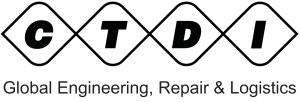Client seminar: Information exchange between competitors
25.03.2011Company: Amcham
On 17 March 2011 a client seminar entitled “Information Exchange Between Competitors” took place in the premises of the law firm Kinstellar. The purpose of this seminar was to inform its participants about the current legislation concerning this issue in the area of competition law and about the potential sanctions for the breach of the related rules.
The opening part of the seminar provided its attendees with a general introduction to the issue of information exchange. The following needs to be reflected in order to assess whether a particular instance of information exchange is illegal:
1. Does information exchange increase transparency of the market and consequently the predictability of behaviour of the individual competitors?
Yes, it does, if sensitive information is exchanged, i.e. information related to prices, production capacity etc. Furthermore, the information must be sufficiently detailed and specific so that it is possible to identify a particular entity or, as the case may be, a product to which the relevant information relates. On the other hand, exchange of aggregated data, in particular, where freely accessible from other sources, is usually not problematic.
Also, the exchanged information should be older than 12 months. Any exchange of newer information may be problematic. What is also important for the overall assessment of the market transparency issue, is the market concentration aspect as regards the market in relation to which information exchange occurs. As a general rule, any information exchange in a concentrated market (i.e. a market in which there is a lower number of competitors operating of which at least some hold significant market shares) with homogenous products may have rather adverse impact on the competitive environment.
2. Who benefits from information exchange?
If only the parties exchanging information benefit from information exchange, then it is more than likely that the information exchange may have negative impact on competition. If the benefit resulting from the exchange is transferred also to other entities (in particular clients due to exchange of know-how), it is more than likely that such an exchange will comply with the competition law.
3. How often does information exchange occur?
The more regular information exchange is (e.g. on a weekly or monthly basis), the more likely it is that such an information exchange will have a negative impact on competition. Random or isolated instances of information exchange do not lead to breach of the competition law.
4. Does information exchange concern only intra-group companies?
Intra-group information exchange is not regulated by any competition rules. Such rules apply only to actions occurring between different groups of companies which are not economically dependent of each other.
The general introduction of the seminar was followed by an extensive discussion on case studies. Please see below some of the relevant conclusions:
Any exchange of pricing information between competitors involves a high degree of risk and can be justified only in exceptional cases. Pricing information such as information concerning current product prices, discounts and other pricing conditions can serve as a typical example of sensitive information. Exchange of current price-related information in the practice often forms part of a price cartel or concerted action facilitating harmonisation of pricing conditions or serving for the purposes of controlling the compliance with the price cartel rules. The issue of publishing information concerning price changes through press releases or on the Internet and the related risks were also discussed during the seminar.
Information exchange within trade associations may be also problematic. In this context, it is very important how detailed and specific the information subsequently disseminated by an association among its members is and how often such an information exchange occurs. The question of responsibility for a potential breach of the competition regulations from the point of view of the competition law, where prohibited information exchange through a trade association occurs, was also discussed with the participants of the seminar.
Information exchange between a seller and a buyer before the conclusion of a transaction is principally excluded. The only exception includes instances of exchange limited to information needed for objective reasons for the completion of a due diligence and for negotiating a contractual documentation.







